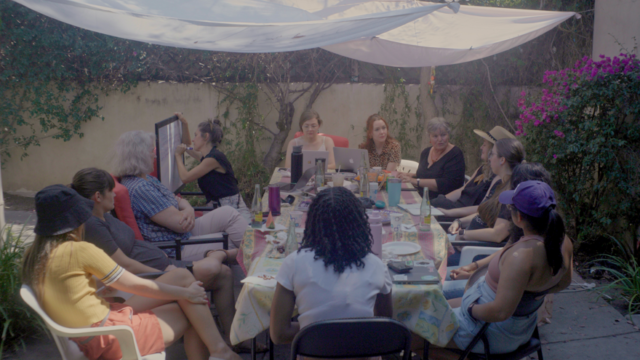
Tracy Droz Tragos’s Plan C is the closing night selection of the thirteenth Athena Film Festival
ATHENA FILM FESTIVAL 2023
Barnard Campus
Broadway between 116th & 120th Sts.
March 2-5, $16 (Festival Pass $50)
www.athenafilmfestival.com
Begun in 2011, the Athena Film Festival is “dedicated to celebrating and elevating women’s leadership. . . . showcasing women’s leadership from underexplored perspectives; women leading in all places and spaces who are resisting and refuting preconceived notions of all they can be and do. . . . bolstering the pipeline of women creatives who are telling these stories and fostering a network of women in film.” The thirteenth annual event, a collaboration between Barnard’s Women and Hollywood and the Athena Center for Leadership, runs March 2-5, consisting of forty features, documentaries, and shorts and six panel discussions. The opening night film is Chinonye Chukwu’s Till, the story of Mamie Till Mobley’s fight for justice following the lynching of her son, fourteen-year-old Emmett Till. The centerpiece is Davina Pardo and Leah Wolchok’s Judy Blume Forever, honoring the legendary author, and the closing night selection is the New York premiere of Tracy Droz Tragos’s Plan C, about the abortion pill in the wake of the overturning of Roe v. Wade.
Highlights in between include Madison Thomas’s Buffy Sainte-Marie: Carry It On, Sarah Polley’s Oscar-nominated Women Talking, Stephen Frears’s The Lost King starring Sally Hawkins and Steve Coogan, Valerie Kontakos’s Queen of the Deuce, Brydie O’Connor’s Love, Barbara about experimental filmmaker Barbara Hammer, and Destiny Macon’s Talk Black. The free panel discussion “Leadership from Below the Line” looks at women and nonbinary film production technicians; among the postscreening panels are “Andrea Dworkin: Ongoing Evolutions of Feminist Herstory,” “Policing Women’s Bodies,” and “Youth Activism, Climate Change, and Environmental Action.”
As I wrote in my preview of the inaugural festival in 2011, “More than a century after women started making movies, it seems a shame that we still need a festival that separates the girls from the boys to celebrate and foster women in film. But alas, we do.” And alas, despite some inroads, that is still true today.